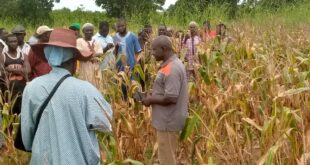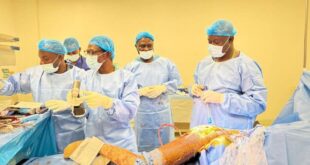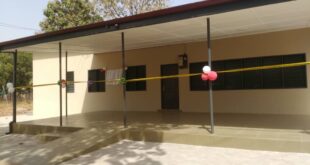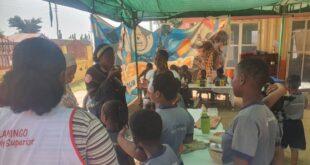Tamale, Ghana – The Northern Sector Manager of Marie Stopes Ghana, Patricia Antwi-Boasiako, has indicated that teenage pregnancy in the country should be a matter of concern to every parent.
According to her, the first six months of 2017 recorded 57,000 teenage pregnancy cases nationwide, stressing the need for sexuality education at homes and schools to be considered seriously.
“So when you look at teenage pregnancy, for the Northern Region 7.9 percent, Upper West Region 9.2 and Upper East Region 8.0 percent. Half year 2017, 57,000 girls were pregnant nationwide. So the truth is, teenage pregnancy is very real.
“And the interesting thing is, though these figures might be low nationally, if you go at the regional level they are very high. So let’s say for the Northern Region, adolescent pregnancy rates are very high in Bole, North Gonja and Sawla-Tuna-Kalba with about 17.5, 16.1 and 17.7 percent respectively. So it’s an issue, it’s a real big problem”, Madam Patricia stated.
She said, evidence in the literature showed that inadequate sexuality education was a major precursor to risky sexual behaviour among adolescents. “Because young people are not adequately informed, their sexual behavioural choices are often predicated on assumptions, misinformation and scanty information they may have chanced upon somewhere”.
For the adolescent, she explained that “the home and the school system are where they spend most of their productive hours in the day, that is from 8-10 hours in school, 4-6 hours at home and 8 hours in bed. This implies therefore that the greatest opportunities to educate them on sexual and reproductive health issues are in these two locations”, Madam Patricia told Savannahnewsonline.com in an interview recently in Tamale.
According to her, “any missed hour with them (adolescents) in these two locations (referring to the home and school) therefore make them most vulnerable to making wrong choices, on the basis of the little information they may have come across on their own”.
Madam Patricia maintained: “Failure therefore, on the part of the home and the school to provide some level of sexuality education to the adolescent can be said to be partly responsible for the observed rise in teenage pregnancies and unsafe abortions”.
The Northern Sector Manager for Marie Stopes Ghana pointed out that, the youth find it difficult to access sexual reproductive health services and attributed the challenge to the unfriendly nature of the country’s health facilities.
“Just to walk into a facility and say look, I have some body changes, I feel like having sex. This is impossible for many youth to do due to the unfriendly nature of our public health facilities. If we’re able to have facilities that are youth friendly, that accept that these are changes happening in these boys and girls and those are somethings that if you are not able to talk to them, they might want to go out there and taste it.
“So we need to be youth friendly….as a nation we need to look at that gap, help these young children or the youth to create a very friendly and enabling environment for them to come out and talk to service providers so that we can guide them on what to do”, she advised.
Marie Stopes Ghana is an international organization that provides family planning and sexual reproductive health services. Currently, the organization is working in 37 countries across the world and has been in existence for 40 years.
It started operations in Ghana since 2006 and currently works in the ten regions of Ghana where it is looking at improving the lives of women, men and young girls by ensuring that they can access family planning and reproductive health services and information they need.
By Savannahnewsonline.com
 Savannah News Online Reporting Only What Matters Most
Savannah News Online Reporting Only What Matters Most



